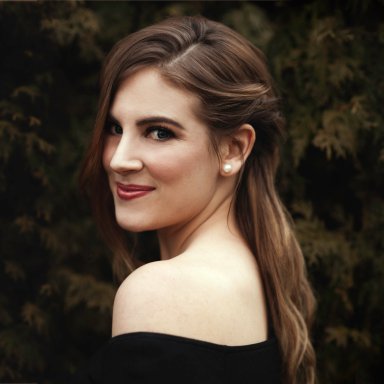Both ESFPs an ENFPs are warm, enthusiastic ‘people-people’ who strive to inspire those around them to reach their full potential. Flexible, creative and emotionally intelligent in nature, it’s easy to mistake these two look-alike types for one another.
Because these types share a decision-making axis (both using introverted feeling and extroverted thinking to reach decisions), they often behave in highly similar ways. However, their internal thought processes are surprisingly different – with the ESFP using extroverted sensing and introverted intuition to perceive the world around them, and the ENFP using extroverted intuition and introverted sensing.
Without diving too deeply down the rabbit-hole of cognitive functions (which can sometimes add to the confusion more than it aids it), here are a few key differences between how these two highly similar types process the world around them.
1. ESFPs want to analyze their feelings and the feelings of others in depth. ENFPs want to analyze the nature of life, the Universe and everything in depth.
2. ESFPs get to know new people by swapping stories about each others pasts and coming to understand which experiences have led that person to where they are today. ENFPs get to know new people by sharing their perceptions and ideas with them, and coming to understand which psychological influences are guiding that person’s understanding of the world.
3. ESFPs are highly in tune with the world around them, and may pause in the middle of a conversation to point out something that’s happening in their periphery. ENFPs often zone out of their physical environments and regularly fail to notice environmental details or events that are going on around them.
4. ESFPs analyze things by contrasting facts and determining which one is the most useful, or makes the most sense in a given situation. ENFPs analyze things by questioning the nature of facts and searching for possible alternate explanations for why things happen the way they do.
5. ESFPs want to be recognized for their accomplishments, and are quick to draw attention to what they’re doing in life. ENFPs want to be recognized for their thoughts and ideas, and are quick to draw attention to what they’re thinking about in life.
6. ESFPs enjoy talking at length about what’s happening in the here-and-now and what is likely to develop surrounding current events (‘Did you hear about this new app? I wonder if it’s going to be successful.’), ENFPs like to talk about what could happen in the future, regardless of whether or not it is likely to develop (‘What do you guys think about AIs gaining complexity and taking over society? Do you think they could be better rulers than humans? Why not, though?’).
7. ESFPs need alone time to recharge from activities and decide how they feel about what’s going on in their lives. ENFPs need alone time to formulate future plans and discern the greater universal meaning behind what’s going on in their lives.
8. ESFPs inspire others by sharing stories about where they’ve been and helping others to realize which similar paths may help them achieve their own desires. ENFPs inspire others by sharing the life lessons they’ve learned and encouraging people to incorporate them into their understanding of the world.
9. ESFPs are energized by deep, lengthy conversations about people and what makes them tick. ENFPs are energized by deep, lengthy conversations about the nature of reality, society and the world, and what makes it tick.
10. ESFPs are adept at maintaining a wide circle of friends and acquaintances whom they can reach out to, though they tend to have a core inner circle whom they spend the most time with. ENFPs often struggle to maintain a wide circle of connections, as they enjoy the company of new people, but rarely feel understood or seen for who they truly are by anyone other than a select core group of people.
11. ESFPs are often driven to help as many people as possible, by providing them with emotional guidance and practical support to help them get to where they want to go in life. ENFPs are more likely to focus on helping the people they know well, by getting to understand them deeply and empowering them to harness their inner strengths.
12. ESFPs may be quick to adapt themselves to others’ way of thinking or doing things in order to avoid conflict. ENFPs are often stubborn to a fault and would usually rather terminate a relationship than abandon or neglect a crucial part of their identity for the sake of harmony.
13. ESFPs enjoy their adventures the most as they’re happening in real time. ENFPs enjoy their adventures the most either before they happen – while they’re envisioning the possibilities of what COULD happen – or after they’ve happened, when they’re able to enjoy reflecting on them.
14. ESFPs often harness their creativity by developing skills in art, music or similar creative fields that allow them to communicate the way they’re feeling and experiencing life. ENFPs often harness their creativity by coming up with new, completely unprecedented ways of doing things, in both art and their everyday lives.
15. ESFPs strive to feel at peace and in harmony with their environments and can usually adapt themselves to any new scenario. ENFPs can adapt themselves on the surface but often feel out of sync with their environments, and may come across as angsty or broody to others when they’re low on energy.
16. ESFPs plan which activities they’ll partake in based on whether or not they think they’ll enjoy them, and they seek out novelty as a means of not getting bored. ENFPs plan which activities they’ll partake in based on whether or not it will provide them with new mental ‘fodder’ and seek out novelty because experiencing things from different angles helps them to form a more comprehensive worldview.
17. ESFPs experience life externally and crave alone time predominantly as a means of recuperating their energy. ENFPs experience life predominantly inside their own minds and often misidentify as introverts.
18. Above all else, ESFPs are looking for the ‘what‘ in life – what’s happening, what’s changing, what’s going on or coming up next. On the flip side, ENFPs are constantly examining the ‘why‘s in life – why things happen the way they do, why we make the choices we make and ultimately, why we’re here at all. ![]()








